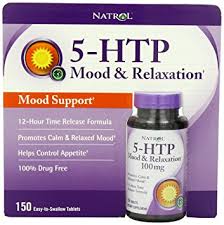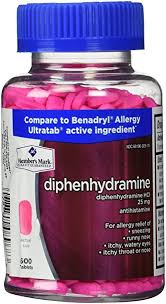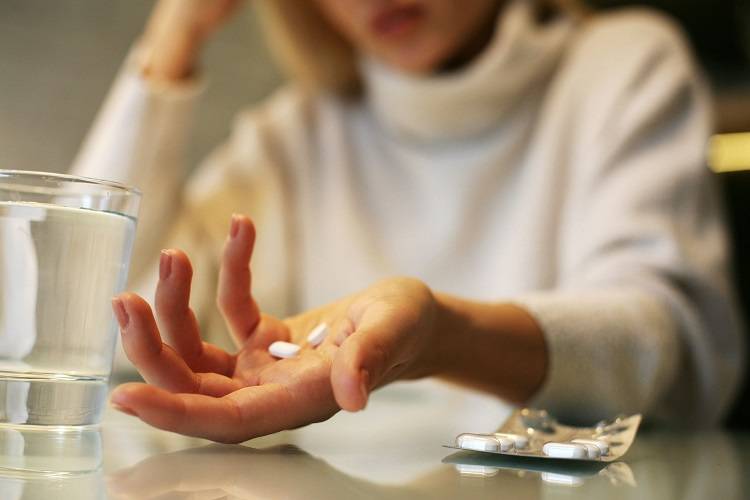There are many people out there who shy away from doctors and physicians. They can’t tell their issues to a doctor because of the fear that they might be diagnosed with some terminal disease or their families will come to know of their medical condition.
This is why they seek over the counter available drugs for minor ailments as well as major ailments sometimes.
Those persons who seek to get help from Opiate withdrawal can have access to some over the counter supplements and drugs.
These supplements are easily available and you don’t need a prescription to get these drugs.
If you are an Opiate addict and you want to quit using Opiates, but you fear the withdrawal symptoms, then this article is here to help you by highlighting the over the counter drugs and supplements for Opiate withdrawal.
What do we mean by Opiate withdrawal?
 Opiate withdrawal is a condition that makes one suffer from symptoms like pain, intense urge to take Opiates, nausea, vomiting, upset stomach, runny nose, increased lacrimation and low mood.
Opiate withdrawal is a condition that makes one suffer from symptoms like pain, intense urge to take Opiates, nausea, vomiting, upset stomach, runny nose, increased lacrimation and low mood.
Why do these symptoms appear? What is the etiology of this condition?
Opiate addiction is the dependence of a person both physically and psychologically on Opiates.
If the Opiate addict doesn’t take Opiates within 12 hours of last consumption, he/she will start feeling the above-mentioned symptoms.
The Opiate receptors present in the central nervous system get used to the extrinsic supply of Opiates and the cells stop producing Opiates intrinsically.
So once you quit the use of Opiates, you basically cut off the source of extrinsic Opiates. Now the body can’t function normally.
Now you start feeling low because the release of dopamine is not occurring. You feel tired because the release of sympathetic neurotransmitters is not occurring.
There is depletion of serotonin, dopamine, enkephalins, dynorphins, and endorphins. Since all these neurotransmitters are not being released, you start craving for Opiates so that you can get rid of the withdrawal symptoms.
The symptoms of Opiate withdrawal are divided into two phases; early and late phase. The symptoms of early phase continue 2-3 days and the late phase starts after 72 hours of quitting Opiates.
What are the Opiate withdrawal remedies over the counter?
The list of drugs/supplements that you can get over the counter and which are helpful for Opiate withdrawal is given below;
-
5 HTP
This is useful for Opiate withdrawal symptoms like depression, anxiety, mood swings and anxiety. It works by elevating the levels of serotonin.
It is converted to serotonin in the brain and then further converted to melatonin. Melatonin aids in sleeping.
Increased levels of serotonin help with depression. 5 HTP shouldn’t be taken with other antidepressants.

-
Diphenhydramine
It shouldn’t be taken if you are taking any other Central nervous system depressant like Opiates or benzodiazepines.
It is useful for the Opiate withdrawal symptoms ‘insomnia’. 50 mg is the recommended dosage. This drug is expensive over the counter drug.

-
DLPA
It is a potent analgesic, anti-depressant and it restores the normal levels of dopamine. L phenylalanine is converted to L-tyrosine in the body which is converted to L-DOPA.
This is further converted to dopamine, norepinephrine, and epinephrine. It prevents the degradation of enkephalins that is responsible for providing analgesia.
Anti-depressant effect occurs due to increased levels of norepinephrine and dopamine. This is how DLPA eases the symptoms of Opiate withdrawal.
DLPA should be not taken by those patients who have genetic disorder phenylketonuria and those who are taking other forms of anti-depressants and MAOI.

-
Ibuprofen
This is useful for pains, headaches and muscle aches associated with Opiate withdrawal. It is a non-steroidal inflammatory drug that should be taken in a dose of 400-800mg.
It should not be taken by those patients who have a bleeding disorder, stomach ulceration, liver inflammation and kidney dysfunction. It is a cheap over the counter drug.
-
Kava Kava
It is a member of the pepper family and generically called Piper Methysticum. It has proven efficacy for anxiety, depression, pain, and insomnia and stress relief.
It doesn’t cause clouding of mind or addiction. For anxiety, a dose of 250-500mg (2-3 times a day) is recommended.
For insomnia, the recommended dosage is the same as that for anxiety, but this dose should be taken 30 minutes before going to the bed.
For pain, the dosage is 250-350 mg (2-3 times a day). Kava works by potentiating GABA, norepinephrine, dopamine, and serotonin.

-
Loperamide
It is an opioid that can’t cross the blood-brain barrier thus it is beneficial in relieving the Opiate withdrawal symptom diarrhea. It acts on the muscle of gastrointestinal tract to reduce peristalsis.
The use of Loperamide, however, is very controversial.
-
L-Tyrosine
It is useful for boosting energy levels, relieving depression, alcohol withdrawal, Parkinson’s disease etc.
It is a precursor of L-Dopa, dopamine, epinephrine, and norepinephrine. The sympathetic neurotransmitters are depleted in conditions of stress; L-Tyrosine restores the normal level of these neurotransmitters.
L-Tyrosine also helps in the correction of imbalance of dopamine levels produced by Opiate addiction.
It helps in elevating the feeling of well being, increases mental alertness and decreases mental fatigue.
-
Melatonin
It is taken for alleviating insomnia, and decreasing nighttime awakening, night terrors, and parasomnias. It also improves mood.
It is a regulator of the biological clock of the human body. The use of melatonin should not be continued for more than two weeks. Melatonin regulates sleep cycle which is disturbed during Opiate withdrawal phase.

-
Vitamin B6
It is useful for some of the Opiate withdrawal symptoms like depression, insomnia, anxiety and low sex drive.
It is a water-soluble vitamin that increases the levels of GABA and serotonin. These neurotransmitters are responsible for mood elevation and have an anxiolytic effect. High doses of this vitamin may damage the nervous system.
-
Anti-histamines
Benadryl can help with allergic signs and symptoms that include a runny nose. It can also reduce nausea and make one sleepy.
-
Meclizine
It is useful for nausea associated with Opiate withdrawal.
-
Valerian Root
A natural treatment for anxiety that also eases Opiate withdrawal symptoms like insomnia and helps in muscle relaxation. It is taken in the form of a pill. It shouldn’t be taken with alcohol.

What other things can I do for Opiate withdrawal?
- Go for exercising regularly or you can practice yoga.
- Use supplements and vitamins to keep yourself healthy and to keep your brain function normally.
- Stay hydrated by drinking plenty of water and juices.
- Use family and friend support to the maximum.
- Acupuncture can also help with pain.
- Using herbal remedies to get rid of withdrawal symptoms give fewer side effects.
- Hot water bath or showers helps in relieving irritability and stress.
- Massages help in reducing muscle cramps, cause relaxation of muscles and soothe the nerves.
Opiate withdrawal and the use of OTC drugs-Concluding thoughts
Though the above-mentioned drugs are readily available OTC drugs and you all must have access to them, but use them with care. Using them in higher doses than recommended can cause adverse effects.
Do not take multiple OTC drugs at the same time. If you have any predisposing conditions or other health issues, do not take any of these medications without consulting your doctor.
If you are using medicines for other ailments, avoid using these OTC drugs to prevent drug interactions from occurring. Do not continue to use these OTC drugs for a long duration of time.
When should I contact a doctor?
If you are not getting better with the over the counter drugs and your symptoms are worsening, it is the time that you call your doctor or pay a visit to your doctor and get immediately prescribed medication for your medical condition.
If you are severely dehydrated due to vomiting and diarrhea, contact a doctor immediately. Dehydration can lead to hypovolemic shock and death.
Some of the symptoms of dehydration include dry mouth, no urination, extreme thirst, fever, tachycardia disorientation, sunken eyes and abnormal respiratory rate.









